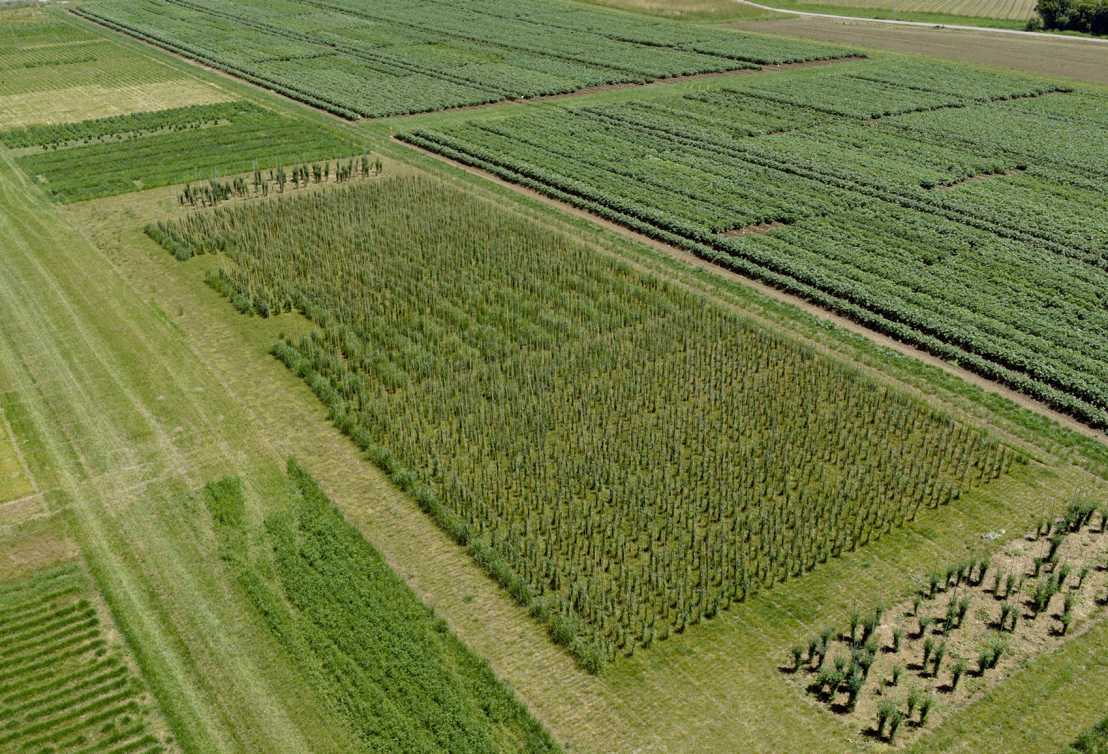Breeding Methodologies

Hybrid breeding is the foundation of seed production in many major crops such as rice, maize, rapeseed and rye as well as most vegetables. Efforts to establish hybrid breeding systems in wheat, barley and forage crops are ongoing. In grasslands, for example, many of the most important forage grass and legume species are characterized by an effective self-incompatibility system that promotes cross pollination. Such allogamous species are usually improved as populations and synthetic varieties, only partially exploiting the genetically available heterosis. The implementation of practical and economic hybrid seed production systems is still a major bottleneck in those species. Therefore, we are developing innovative research approaches to identify, characterize and utilize biological mechanisms in forage grasses to control pollination, which can – among a broad range of other applications – be exploited in hybrid breeding schemes.
Among our main interest regarding these genetic mechanisms, we are focusing on:
- self-incompatibility, which prevents self-pollination in many plant species
- self-compatibility, which is a naturally occurring breakdown of self-incompatibility
- cytoplasmic male sterility (CMS)
- double haploid production, as a tool to produce parental lines
Genomic selection, a powerful tool in plant breeding, has revolutionized the way plant breeders select and develop improved crop varieties. It is a method that utilizes genomic information to predict the breeding value of plants, allowing breeders to make informed decisions early in the breeding process. This accelerates the breeding process, reducing the time required to develop new varieties. With our work, we contribute to the implementation of more effective genomic selection strategies in wheat, apple and forage crop breeding programs.
Highlights of our research on breeding methodologies are featured here:
ChromaX: a fast and scalable breeding program simulator
The Python library ChromaX offers breeders and scientists new opportunities to simulate genetic gain and optimize resource allocation in breeding programs.
How grasses avoid inbreeding
ETH Zurich researchers have been able to show which genes inhibit self-fertilisation in grasses. Plant scientists can now use this mechanism in a more targeted way to breed new varieties of forage grasses as well as rice or barley.
Advancing climbing bean breeding
The inclusion of data from bush type beans can improve genomic predictions for climbing beans, a new study reveals.
Predicting the performance of apple across environments
Insights into the genetic architecture and genomic predictive ability of quantitative traits can contribute to an increase in the efficiency of apple breeding.
Towards gene identification for self-compatibility
A fine-mapping approach further elucidates the genetics underlying self-compatibility in perennial ryegrass.
Self-compatibility for research and breeding
A comprehensive scientific review about self-compatibility in grasses and its implication for breeding.
The apple REFPOP – a reference population for genomics-assisted breeding in apple
In a large collaborative effort of the apple REFPOP consortium, we proved that the apple REFPOP experimental design and associated genotypic resources are suitable for the development and application of genomics-assisted breeding strategies in apple.
Polycross breeding of tall fescue profits from molecular marker-based paternity identification
Microsatellite markers allow to identify unique polycross parents and to estimate specific combining ability in a tall fescue breeding program.
Powerful grass hybrids
Genomics-assisted development of heterotic groups for successful hybrid breeding in perennial ryegrass.
Advancing pesticide policies
About the role of modern plant breeding in a multi-disciplinary policy approach to reduce potential risks of agricultural pesticide use.
New source of self-compatibility in perennial ryegrass
A new locus was found to overcome the inability of perennial ryegrass to pollinate and fertilize itself.
Genomic prediction of agronomic traits in common bean under environmental stress
In this study, we evaluated the accuracy of genomic predictions for agronomic traits in different environments using data of the bean breeding program of the International Center for Tropical Agriculture (CIAT).
